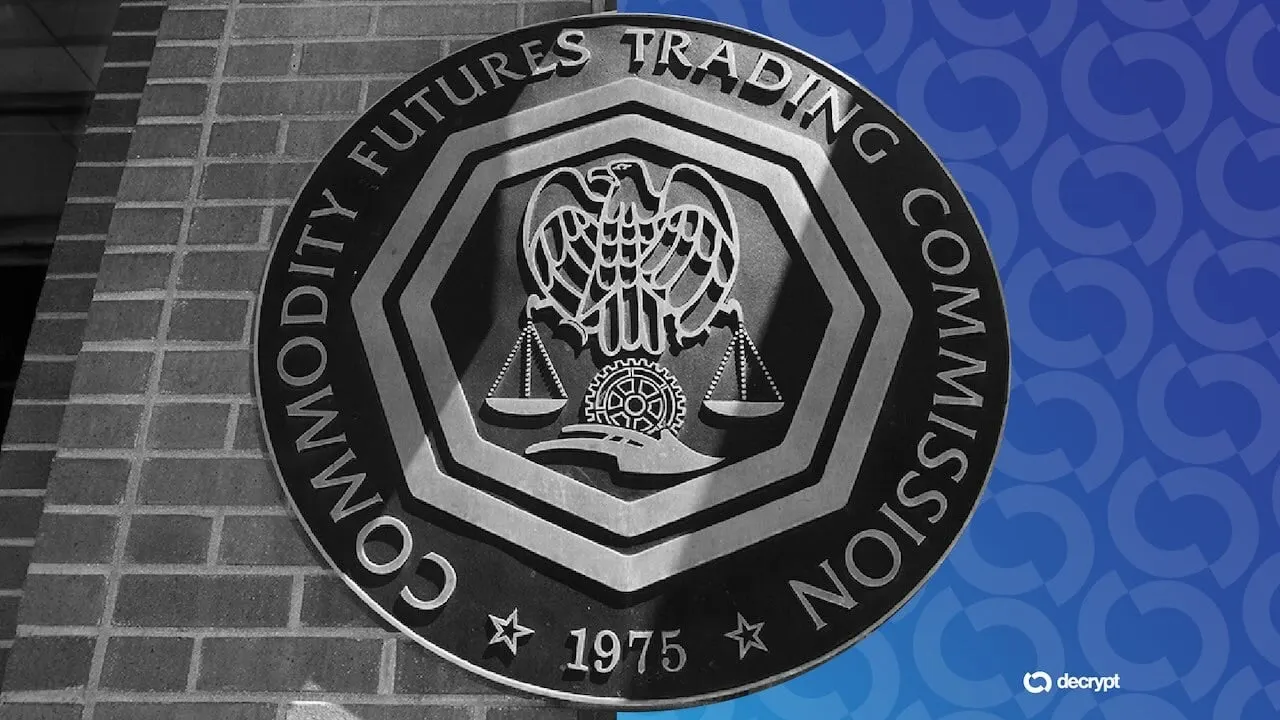In brief
- The White House has abruptly ended Brian Quintenz’s candidacy to lead the Commodity Futures Trading Commission.
- Crypto lobbying, a dispute with Gemini co-founders the Winklevoss twins, and opposition to Quintenz’s Kalshi links may have played a role.
- Acting CFTC chair Caroline Pham will remain in place as new contenders are considered.
The White House has withdrawn Brian Quintenz’s nomination to chair the Commodity Futures Trading Commission late Tuesday, Politico reported, citing two people familiar with the decision.
The move comes less than eight months after President Donald Trump tapped the former commissioner to lead the regulator.
A new nominee will be announced "in the near future", one official told Politico.
Quintenz, a onetime CFTC commissioner who later joined venture capital giant Andreessen Horowitz, had drawn support from both traditional finance and the digital asset sector. Yet his candidacy stumbled amid a very public feud with crypto billionaires Tyler and Cameron Winklevoss.
The CFTC’s importance has grown far beyond its traditional role overseeing commodity markets like corn and oil. Since Trump's return to power, lawmakers have been weighing whether to hand the agency direct authority over cryptocurrency. That shift would transform the CFTC into one of the most influential financial regulators in Washington, with sway over the future of the digital asset industry.
Quintenz vs Winklevoss
Quintenz was widely considered a shoe-in for the next chair but in July, the Winklevoss twins urged Trump to reconsider his choice, telling him that Quintenz was out of step with the president’s crypto agenda.
Their exchange, Gemini, has had ongoing troubles with the CFTC since 2017. In 2022, it was sued by the regulator for making false and misleading statements, resulting in a $5 million settlement in January this year. Gemini maintains that the allegations were based on those of a “false whistleblower”.
The argument escalated in September when Quintenz released private texts from Tyler Winklevoss. In them, the Gemini exchange co-founder argued the CFTC had treated his company unfairly and demanded Quintenz commit to reform. Quintenz pushed back, and later suggested the twins had misled the president about his positions.
The nomination also faced headwinds due to Quintenz's being an advisor to Kalshi, a prediction market firm that has sought entry into sports betting.
Jakob Kronbichler, CEO and co-founder of on-chain credit marketplace Clearpool, told Decrypt that while the comments certainly didn’t help, nominations at this level are rarely decided by one incident. “Other factors such as political alignment, relationships across the industry and confidence among policymakers are just as important. Ultimately, what matters is whether a candidate can command trust from both markets and Congress,” he said.
“Debate is normal and necessary in policymaking. What it does show is how closely the politics around crypto are being watched, and how much more scrutiny there is now on the relationships between regulators, industry, and the White House.”
Ji Kim, CEO of the Crypto Council, called Quintenz a principled leader with deep expertise. “Brian would have been an exceptionally strong and principled leader for the CFTC, our industry, and our country,” Kim posted.
Thank you @BrianQuintenz for your willingness to serve as the President’s nominee for the @CFTC. Brian would have been an exceptionally strong and principled leader for the CFTC, our industry, and our country—marked by integrity, conviction, deep expertise, and a clear… https://t.co/lBFFiC9PjE
— Ji Kim (@_jikim) October 1, 2025
What now for the CFTC?
For now, the CFTC remains in the hands of acting Chair Caroline Pham, a Republican who has pledged closer coordination with the SEC while defending the CFTC’s independence. Pham has indicated she plans to step aside once a permanent chair is confirmed.
Kronbichler said it was hard to speculate on names, but the administration will want someone who can apply the same rigor to digital assets as to traditional markets, and who can also engage globally because markets don’t stop at national borders.
“The CFTC has a central role in setting standards for derivatives and trading venues, and the next nominee will need credibility with both Wall Street and Washington,” he said.
“Regulatory experience and a practical approach to innovation will be crucial. It’s not about being for or against crypto, but about recognising digital assets are already part of global markets. The next Chair has to balance investor protection with keeping the U.S. competitive.”

